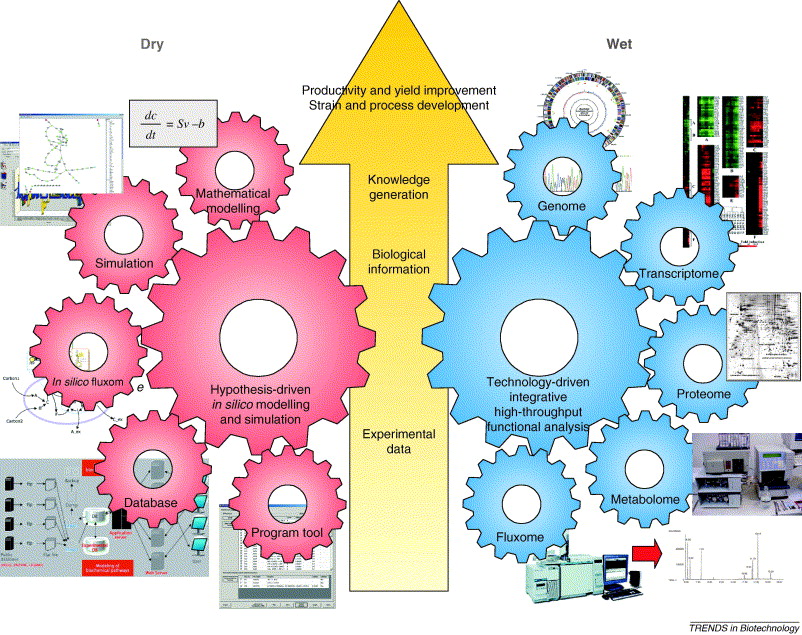SSB@NUS:Research
Application of Computing, Informatics & Systems Engineering to Life Sciences and Biochemical Research
Systems Engineering and Informatic Analysis of Chemical/Biological/Biomedical Processes
Systems Biology/Biotechnology/Bioinformatics
Special attention is recently being paid to Systems Biology and Biotechnology as promising research and development paradigms for elucidating the complex biological processes and for achieving efficient biotechnological processes. The central task of this area is to comprehensively collect the global cellular information such as omics-data, and to combine such data through complex biological processes, i.e., metabolic, signaling and regulatory networks, in order to generate predictive computational models of the biological system. Thus, better understanding the cellular physiology, regulation and metabolism at the systems level and designing strategies for metabolic and cellular engineering of organisms are a prime target of this research. Our research subjects are part of this goal. More specifically, some challenging topics can be addressed as follows, but not limited to.
Identification and prioritization of antimicrobial drug targets
The large-scale organization principles and functional properties of the biological systems (like how these molecules are interacting with each other to maintain the robustness of cellular functions) can be elucidated by analyzing the topological and dynamic properties of biological networks. A graph-theoretic approach and constraints-based flux analysis for the identification of multiple biochemical pathways can be promising for the analysis of the genome-wide networks. This would facilitate the discovery of antimicrobial drug targets that are essential for the growth or survival of a pathogen satisfying the principle of selective toxicity.
Investigation of pharmacodynamic and mechanistic effects of drug candidates
To date, numerous drug targets for various diseases have been identified at different levels in the signaling pathways. A major challenge is to explore such identified drug effects on the pharmacological modulation within the reconstructed pathways in order to evaluate the efficacy, safety and cost-effectiveness of drug targets available. The detailed molecular mechanisms of the reconstructed cell-signaling network could provide useful information for developing a rational approach to the quantification of the mechanistic effects of drugs and prioritizing and verifying drug candidates at the system-level.
Synthetic Biology
- A) the design and construction of new biological parts, devices, and systems, and
- B) the re-design of existing, natural biological systems for useful purposes.
